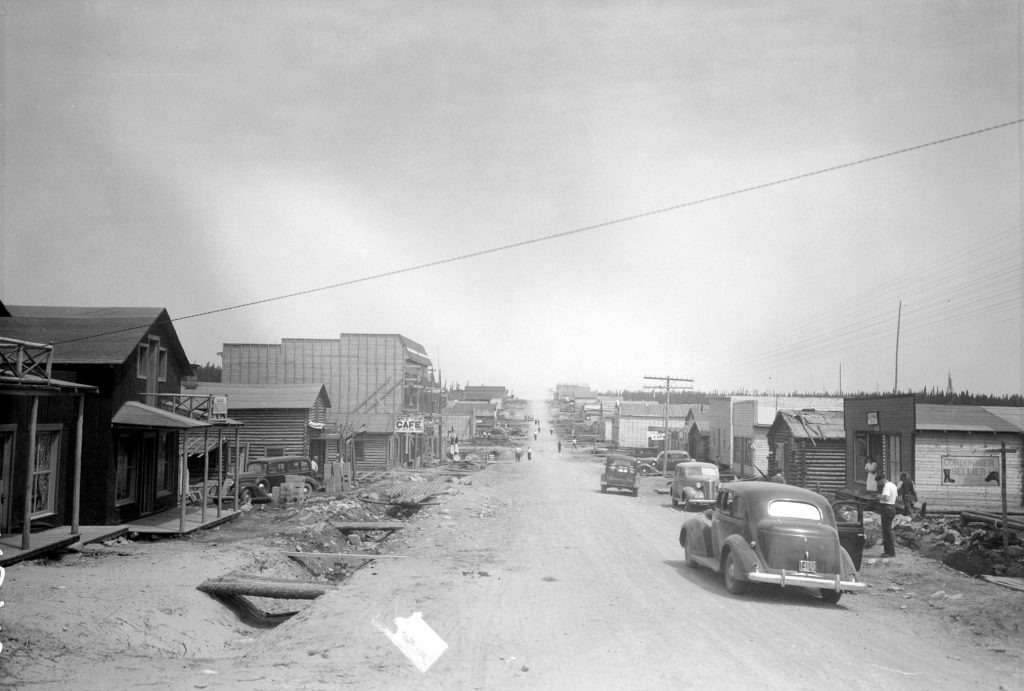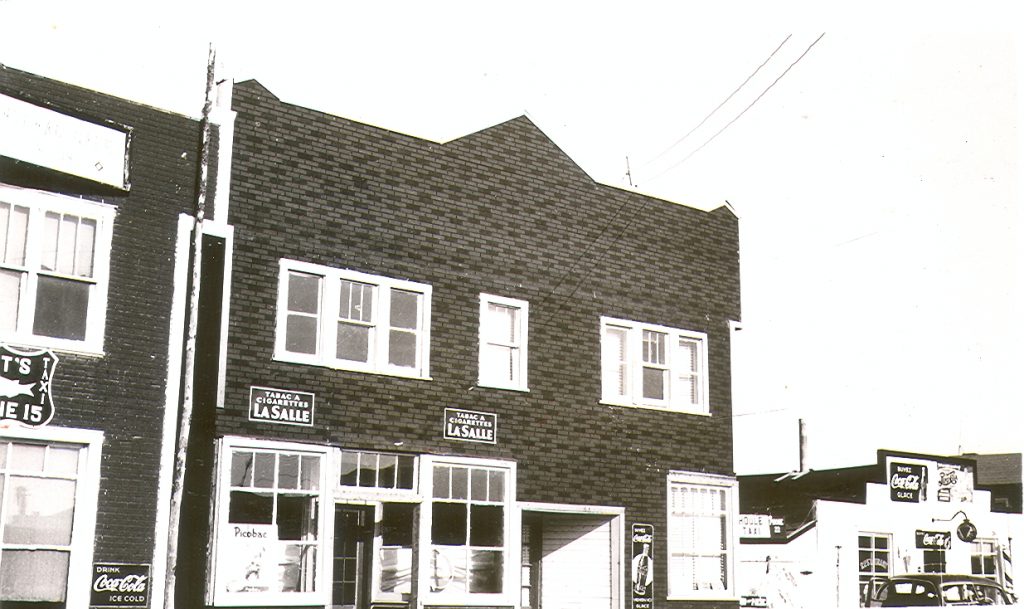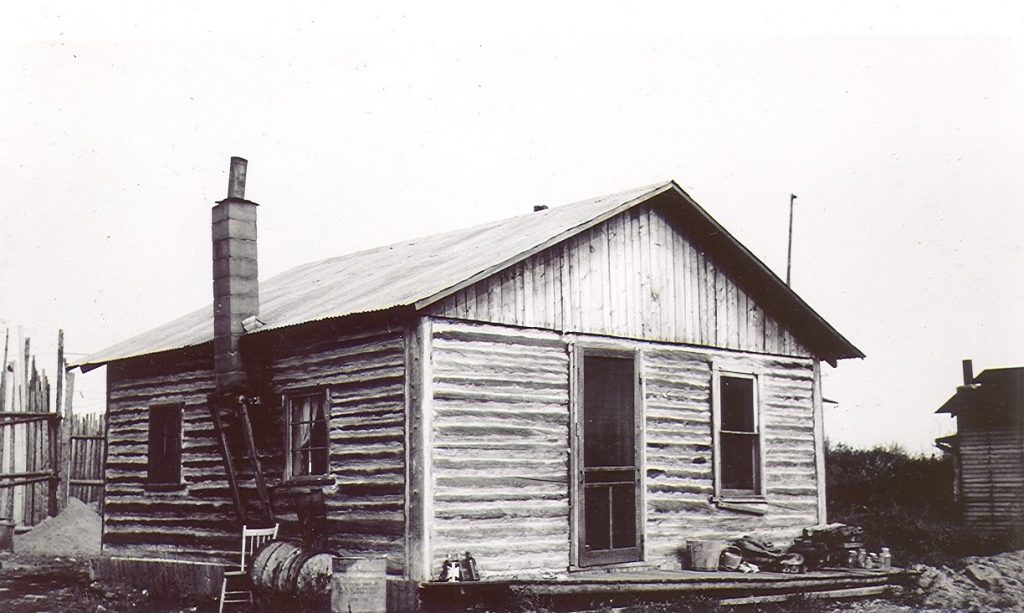Putainville
One is struck by the vile nickname of “Putainville” – French for “whoreville”. Images of prostitution, drinking, gambling, and violence spring to mind.

The south end of the village of Roc-d’Or in 1937 (BAnQ Québec, ministère de la Culture et des Communications fonds).
Its chaotic beginnings earned Roc-d’Or its nickname early on. A June 22nd 1936 police report lists 25 illegal drinking establishments and nine prostitutes. Total population 175.

Building belonging to a resident “well known to the police” in 1942 (BAnQ Québec, ministère de la Culture et des Communications fonds).
Gaming houses, illegal bars, and brothels were most active on payday every two weeks. Some “filles de joie” came to the squatter village on payday, twice a month. Others lived there.
Marielle Rioux raises the veil on prostitutes and illegal liquor in “Putainville”:
Listen to the interview with transcript.
Roc-d’Or had a dozen bootleg establishments. In his autobiography, Jacques Miquelon mentions several. There was “chez Pauline, chez Gaby la Française, chez Ti-Blanc, chez Marthe la Belge.” The Liquor Police and Morality Squad raided them frequently.

Log cabin designated as “a brothel” in the inquiry of summer 1942 (BAnQ Québec, ministère de la Culture et des Communications fonds).
With a name like “Putainville”, the village had not driven prostitution completely underground. Jacques Miquelon recalls that “customers go there as if to the grocery store, the pharmacy or the bank. Save a few devout souls, nobody is outraged.”

